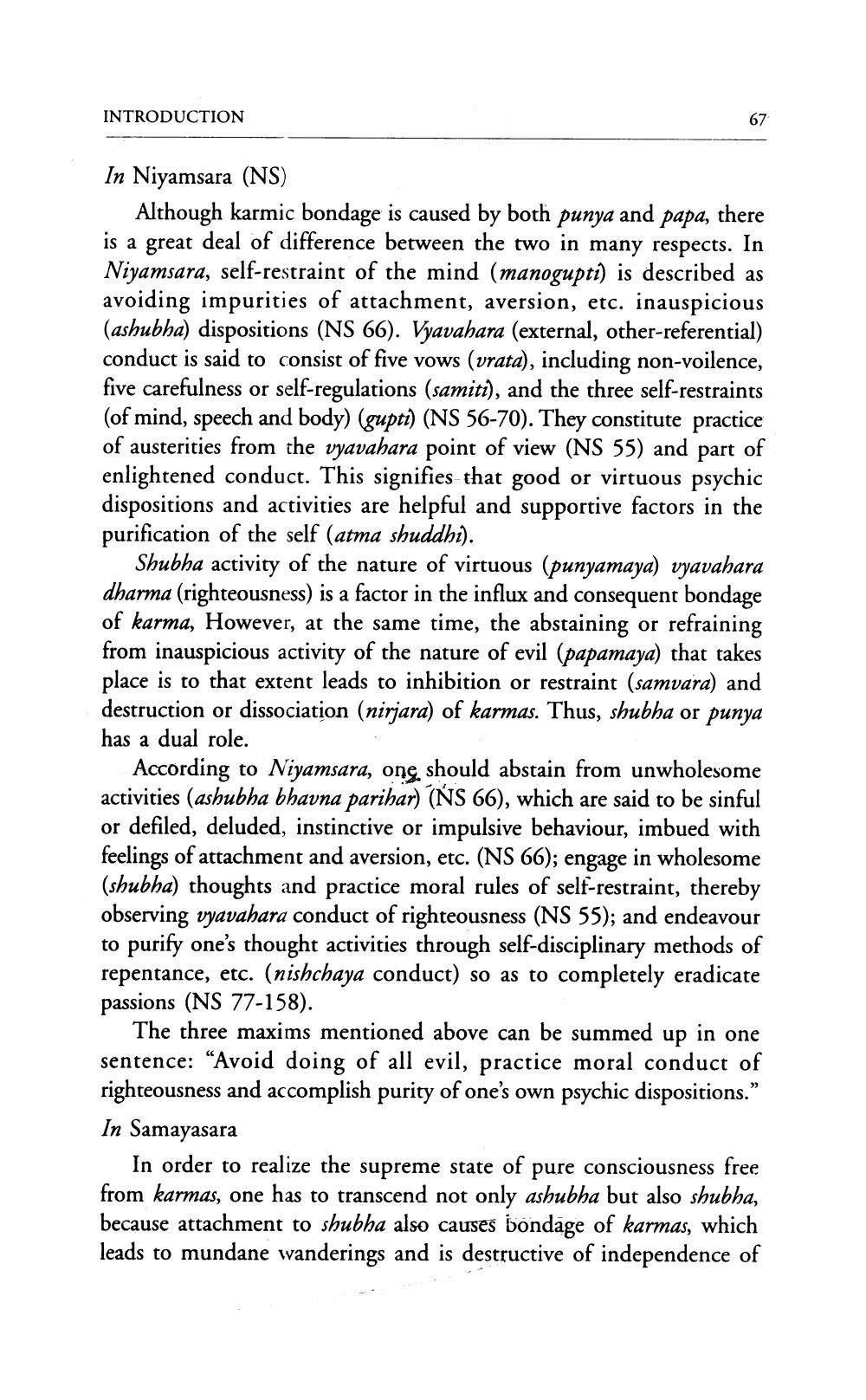________________
INTRODUCTION
In Niyamsara (NS)
Although karmic bondage is caused by both punya and papa, there is a great deal of difference between the two in many respects. In Niyamsara, self-restraint of the mind (manogupti) is described as avoiding impurities of attachment, aversion, etc. inauspicious (ashubha) dispositions (NS 66). Vyavahara (external, other-referential) conduct is said to consist of five vows (vrata), including non-voilence, five carefulness or self-regulations (samiti), and the three self-restraints (of mind, speech and body) (gupti) (NS 56-70). They constitute practice of austerities from the vyavahara point of view (NS 55) and part of enlightened conduct. This signifies that good or virtuous psychic dispositions and activities are helpful and supportive factors in the purification of the self (atma shuddhi).
Shubha activity of the nature of virtuous (punyamaya) vyavahara dharma (righteousness) is a factor in the influx and consequent bondage of karma, However, at the same time, the abstaining or refraining from inauspicious activity of the nature of evil (papamaya) that takes place is to that extent leads to inhibition or restraint (samvara) and destruction or dissociation (nirjara) of karmas. Thus, shubha or punya has a dual role.
According to Niyamsara, one should abstain from unwholesome activities (ashubha bhavna parihar) (ŃS 66), which are said to be sinful or defiled, deluded, instinctive or impulsive behaviour, imbued with feelings of attachment and aversion, etc. (NS 66); engage in wholesome (shubha) thoughts and practice moral rules of self-restraint, thereby observing vyavahara conduct of righteousness (NS 55); and endeavour to purify one's thought activities through self-disciplinary methods of repentance, etc. (nishchaya conduct) so as to completely eradicate passions (NS 77-158).
The three maxims mentioned above can be summed up in one sentence: “Avoid doing of all evil, practice moral conduct of righteousness and accomplish purity of one's own psychic dispositions.” In Samayasara
In order to realize the supreme state of pure consciousness free from karmas, one has to transcend not only ashubha but also shubha, because attachment to shubha also causes bondage of karmas, which leads to mundane wanderings and is destructive of independence of




